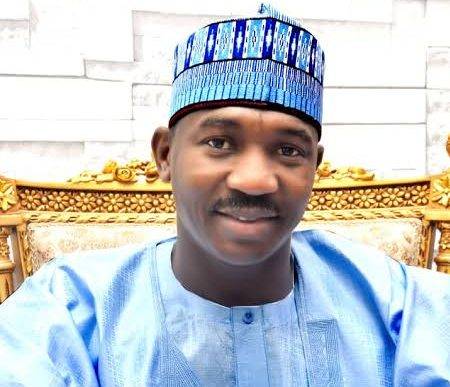The only difference between a dangerous virus and a nuclear weapon is perhaps the mushroom cloud; they both explode, destroy, and change course of human history. Little wonder that biohazards were developed and worse even used at some dark moments in living memory. This is no time to be distracted by conspiracy theories but it will be good to learn more about the collapsed building in China.
Former German Chancellor Gerhadt Schroeder while being evacuated moments after the 911 attacks managed to answer a reporter saying “these attacks have changed the World”. He did not say will change, but have changed. He was so right. Covid19 changed the World the moment governments and media gave it the deserved reactions they did.
As governments the world over are enjoying unprecedented support and silence from opponents to deal decisively with Covid19, attention must be quickly drawn to the fact that the human race will be worse off if the present measures adopted globally to defeat it eventually result in consequences with higher fatalities. This is to say pointedly that deaths from social and security crises that are certain to follow the worst global recession must not exceed the lives saved from all the good actions taken now. Should this be the case, it is only right to begin to think up alternative course or courses of action.
There can be no economic collapse in a fragile world as of today without serious negative consequences. A greater danger is being foreseen in which Covid19 after being successfully defeated turns out to be at the cost of national and global means of livelihood.
Human resilience has receded far enough to accommodate all the fear and respect that Covid19 deserves. Soon enough, that human survival spirit will make people to ask not what is Covid19 but who is Covid19? People will weigh sitting and dying slowly, the pain of burying loved ones steadily, and all forms of social evils breaking down their erstwhile livable communities on one hand, and the pain of contacting, spreading and by chance surviving Covid19 as they observe all medical safety advice to resume normal working lives on the other hand.
The Covid19 story is playing out like Mexican wave in a global stadium: It hit China first, the area jumped and now beginning to sit, then South Korea, Japan, and the rest of Far East, brushed over the Middle East, now peaking in Europe, USA feeling its brunt but yet to peak, rest of South America waiting in fear and apprehension, finally it may end, and end up in Africa assuming it will be only once around the global stadium.
Ultimately, the virus is a human problem. It is not about capacities of individual countries to fight it. No country is safe as long as the virus is lurking in even the poorest and remotest country on Earth. It is now time to concentrate on global figures because it is strictly Covid19 versus humanity.
For a world that has so suddenly changed, authorities could be wrong thinking that their economies will easily be restored; some changes will be life-long, some damages will be permanent. Sea cruises for example will only be for the very bold and daring, just as airlines will have to rethink economy class seating.
Fareed Zakaria already warned “we are at the early stages of what is going to become a series of cascading crises reverberating throughout the world and we will not be able to get back to anything resembling normal life unless the major powers in the world can find some way to cooperate and manage these problems together”. He added “the first phase has been the healthcare crisis in the world’s major economies, the next phase is the economic paralysis, the magnitude of which we are just beginning to comprehend”. Fareed concluded by predicting “next come the explosions in the developing world. Expect political turmoil, refugees, revolutions, crack downs, and maybe terrorism. All of these may happen on a scale we haven’t seen for decades. If countries like Iraq and Nigeria explode, the cost in refugees, disease, and terrorism will all make us wish we had tried harder to manage their fall. The problem we face is broad and global, but unfortunately the responses are increasingly narrow and parochial”.
So far the major world-acknowledged response to Covid19 is that all together industry and universities are working towards cure and vaccine, as governments appear to have limited their strategy to the twin actions of restrictions and very temporary relief packages. Realization of these facts must certainly motivate developing at least a new thinking on our options and strategies. One in which at least economies are firmly isolated or reasonably protected from easily avoidable chain reactions.
In a fast evolving situation, assumptions and statistics easily fail. However their use is as necessary as any thoughts given to the problem. With all the measures rightly taken around the world, governments may be able to limit spread of Covid19 to about 10 million people if by now total global infections are just under 1.5 million. A fatality rate of 2.5% means total global deaths of about 250,000 people. Four months of November 2019 to March 2020 gave about 76,000 deaths. Since the Spanish flu lasted about two years, one may optimistically assume Covi19 lasts for 1 year taking into account the advance in technology. So the rough estimates are fairly tolerable. Without lock downs and restrictions but with social distancing and all forms of medical safety practiced, thus allowing economies unaffected, the worst infection rate can reasonably be put at 10%, that is about 780 million people infected globally. In this case 2% not 2.5% fatality rate will mean 15.6 million deaths from Covid19 through the entire pandemic. As dreadful as this sounds, it is below 20% of the Spanish flu fatalities. The difference between the 15.6 million and 0.25 million fatalities respectively is the service or benefits of the right measures taken globally now. This number is 15.35 million fatalities.
The Somali crisis is now in its third decade, Nigerian insurgency and Iraq collapse in their second decades, Libyan and Syrian crises approaching a decade. Meanwhile the effects of Liberian, Sierra Leone crises are not entirely over. Social and security crises resulting from variety of factors can last for very long periods and continue to destabilize populations. Covid19 on the other hand may just serve out its term and pass.
The question now to ask, better put, the real and present strategic fact we must not fail to consider is – will the danger of economies collapsing globally lead to social problems and security crises that give higher fatalities than the 15,35 million saved through earlier proactive actions? Very few professionals have the capacity to determine this answer. And when they do, hopefully soon enough, there may be urgent need for a second approach to fighting Covid19. One which recognizes its transmissibility and deadliness and the corresponding early responses of world governments, but one equally recognizing that sustaining normal human living, economies and all forms of livelihood save more lives.
Lessons learnt from Covid19 when it is all over will not be complete unless we learn to build more shock-resistant economies. An index of shock resistivity by any name should be expected among World Development Indicators data.
As for Nigerian government, its is very instructive to note that the international community in the context of Covid19 will easily exercise the civil liberties that Nigerians collectively failed. The question asked to AbdulSalam Nasidi on Al Jazeera panel discussion is of particular interest. In a panel of 3 discussants, he was singled out and asked to comment on ‘its not how much money, but how well the money is used”. No satisfactory answer was given. Staggering questionable amounts already expended just as the Accountant General’s building gutted by fire. Individuals are mere micro-victims of Covid19 because it appears more interested in human businesses, systems, and ways of life. In the process of a genuine global Covid19 war, Nigeria may just be lucky to have a comfortable deep-seated system of corruption and incompetence corrected.
……………………………………………………………….
Senator Datti Baba-Ahmed, PhD, is Founder of Baze University, Abuja, Nigeria.



